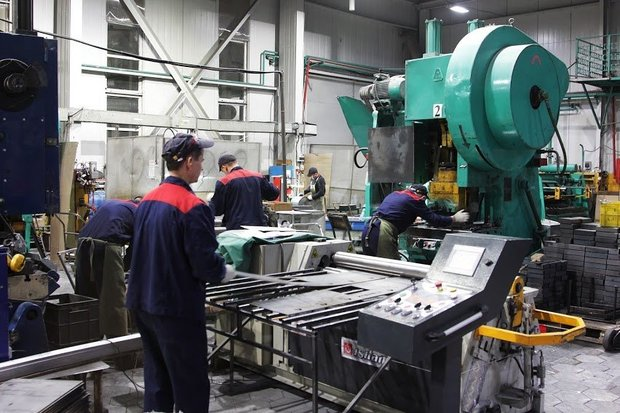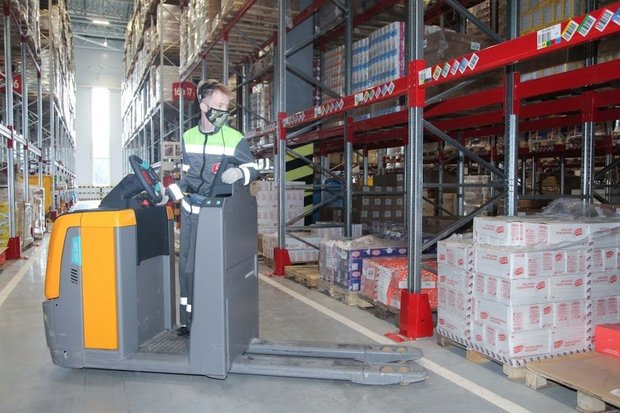Elmira Zaripova: ‘Every dead worker has a family and children who lost a breadwinner’
In the last six months of 2021, the Ministry of Labour, Employment and Social Protection in Tatarstan has conducted 735 inspections with 233 warnings
This year, 113 occupational safety rules have lost their force in Russia, another 40 have been updated. But new big changes in the Labour Code are looming, and the Labour Ministry in Tatarstan has been set the task of helping enterprises of the republic to learn all the intricacies of the transition to risk-oriented management in occupational safety faster. Minister of Labour of Tatarstan Elmira Zaripova talked about this at a briefing in the House of Government.
Good indicators aren’t a reason to relax
In occupational injuries in 2020, Tatarstan has one of the best indicators — 0,7 per 1,000 workers and ranks third in a rating of regions after Penza Oblast (1st) and the Chuvash Republic (2nd). This indicator is 32% below the Russian average, which is 1,03 injured people per 1,000 workers, said Tatarstan Minister of Labour, Employment and Social Protection Elmira Zaripova. However, the indicator of traumatism with death has reduced by 15%. And the minister stresses that one shouldn’t relax:
“It is a reason to seriously talk with employers and analyse the causes of those cases that led to deaths. We understand that every dead worker has a family, unfortunately, it is children who lost a breadwinner. To avoid such situations, the republic is seriously working on this issue in the person of employers, trade unions, municipalities.”
Falls from height are mostly 30% of the accidents at work in the republic. Road accidents account for 17%. Elmira Zaripova notes a fall in traumatism because of moving, scattered objects, incorrect use of equipment, impact of fire and smoke.

Statistically, processing plants, construction and mineral production remain the most injurious areas. The labour minister calls an 80% fall in traumatism in agriculture and transport.
Negligence and carelessness often turn out fatal. Elmira Zaripova especially singles out an accident that took place in an industrial zone of Nizhnekamsk where a 35-year-old worker died. A young father fell from a height though he had a safety belt on. However, it was figured out that the belt hadn’t been fastened. “Here is an example of the incorrect use of personal protective equipment when it simply exist to tick the box,” the minister complained.
To reduce the number of accidents, the Ministry of Labour regularly inspects enterprises. In the last six months of 2021, 735 inspections have been carried out, 233 warnings have been issued and 129 accidents have been investigated. Not only punishment by fine or warning is tightened. 83 criminal cases have been launched for violating process and occupational safety during the indicated period. Courts have imposed five sentences.
“The compliance with requirements and safety rules is carefully controlled by the Tatarstan president at Saturday meetings that are held together with construction employers, the issue of following safety rules on construction sites is tabled,” stressed Zaripova.
The minister also noted that in 2021 inspections were conducted not only after serious violations but also preventively, no matter if there were accidents or not.

Excess burden — under the guillotine
To lift the excess burden on business, accelerate economic development, a large-scale legislative reform was launched in January 2019, which is the so-called “regulatory guillotine.”
The task of the guillotine is to create a new system of clear and accurate requirements for entities in the regulation area, lift the excess administrative burden on entrepreneurs, reduce the risks of damage on protected values.
For two years, more than 9,000 regulatory acts establishing mandatory requirements have been either reconsidered or cancelled. 113 occupational health rules have lost their force since 1 January 2021. At the same time, 40 new rules have come into force. The minister of labour pays attention to the fact that the rules haven’t become stricter.
The Russian Ministry of Labour has seriously re-elaborated, updated and simplified huge rules by turning them into instructions every employer can adapt according to the specifics of their production.

The Ministry of Labour, Employment and Social Protection of Tatarstan actively participated in the discussion of the bill. There was supported a proposal for saving the average salary not only during medical check-ups but also psychiatric examinations. Also, the ministry developed offers to conduct working conditions and workers’ training in safe methods and approaches.
It is necessary to prepare for the upcoming changes right now, Elmira Zaripova assures us. Every employer needs to adopt about 20 local regulatory acts that refer to their enterprise. Specialists of the Ministry of Labour are ready to help employers with adapting to the new rules.
Employer must evaluate risks
A new risk-oriented approach envisages that the employer evaluates dangerous factors at every specific place. Occupational safety specialists in enterprises need not only to describe but also select optimal solutions to minimise risks. A new concept is introduced — professional risk management.
It is offered to minimise the risks with the help of individual protective equipment. The system of their issue will change too. Earlier, there was a list of professions that requires a certain set of personal protective equipment, while those workers whose professions weren’t on the list didn’t receive any equipment. With the introduction of a risk-oriented approach, personal protective equipment is handed over considering risks that are present at a specific place.
Elmira Zaripova notes that employers will be required to be responsible in the new system: “Don’t work so that you describe everything once, put it aside and sit and wait for an inspection to come. No, of course.” According to the minister, the situation will need to be constantly controlled and corrected if needed.

The new rules are introducing the concept of occupational microinjury. Microinjuries must be analysed by the employer according to the new edition.
The worker has the right to turn to the employer to register a microinjury. All these cases, of course, must be registered, Elmira Zaripova draws our attention. It is important for employers to be careful enough and stay tuned for all those situations that can do harm a worker. All this must be written down in local acts.
To control process safety and the compliance with occupational safety, the employer has the right to record audio and video in workplaces. The Tatarstan minister of labour thinks that such a novelty will help in case of debatable situations.
Oral briefings and occupational safety books are becoming a thing of the past. All the necessary information about working conditions, risks, necessary personal protective equipment, video in the workplace need to be added to the contract according to the new rules.
140,000 jobless people
Talking about existing possibilities for Tatarstan citizens, Elmira Zaripova noted that every jobless citizen must be entitled to 140,000 rubles to develop their own business. At the same time, citizens must create a business plan and submit it in a local employment service for evaluation. If the plan is approved, a jobless citizen receives over 140,000 rubles of benefit with further liability to develop this business during the year. If money wasn’t taken out to develop a business but in disguise, law enforcement agencies will join the case.
There are already more than a hundred positive stories when jobless people used this programme, the minister says. She also notes that such business support measures exist in many regions; if there is a centralised federal programme, Tatarstan will be ready to join it.